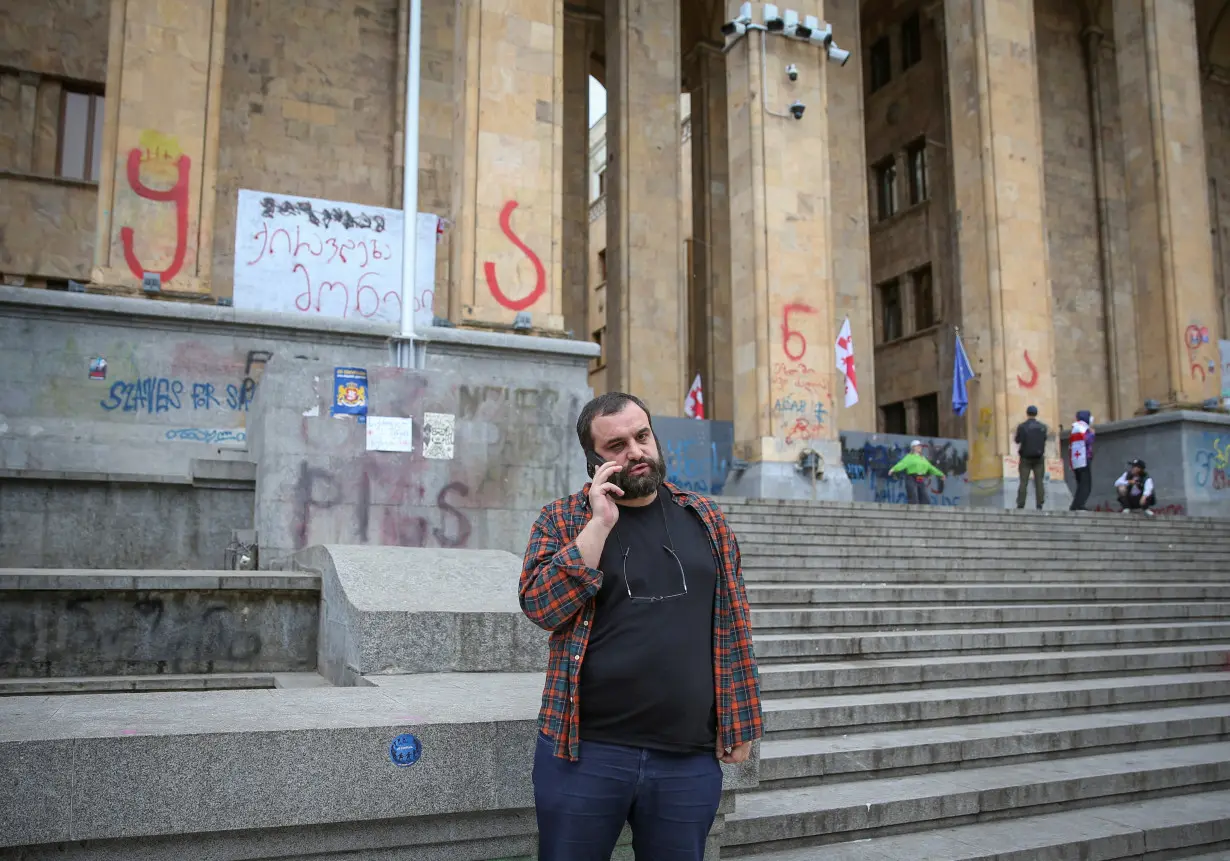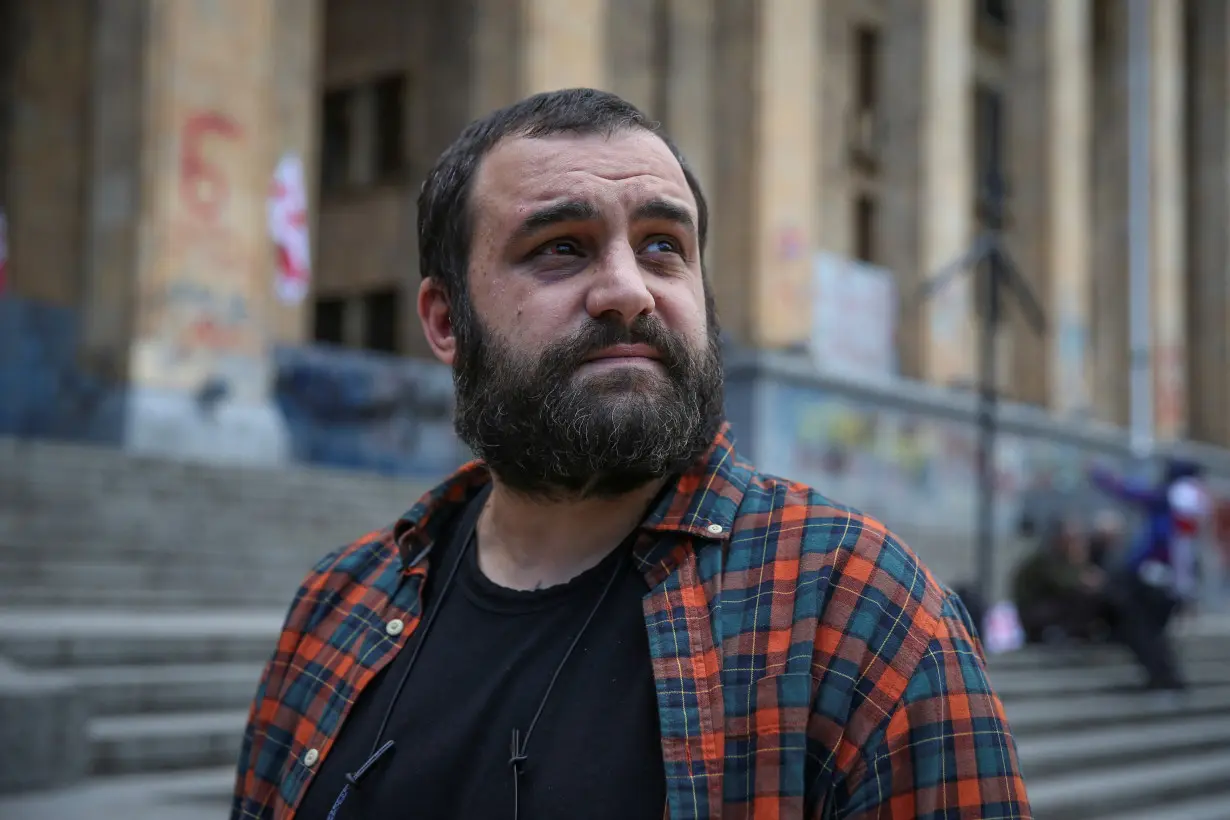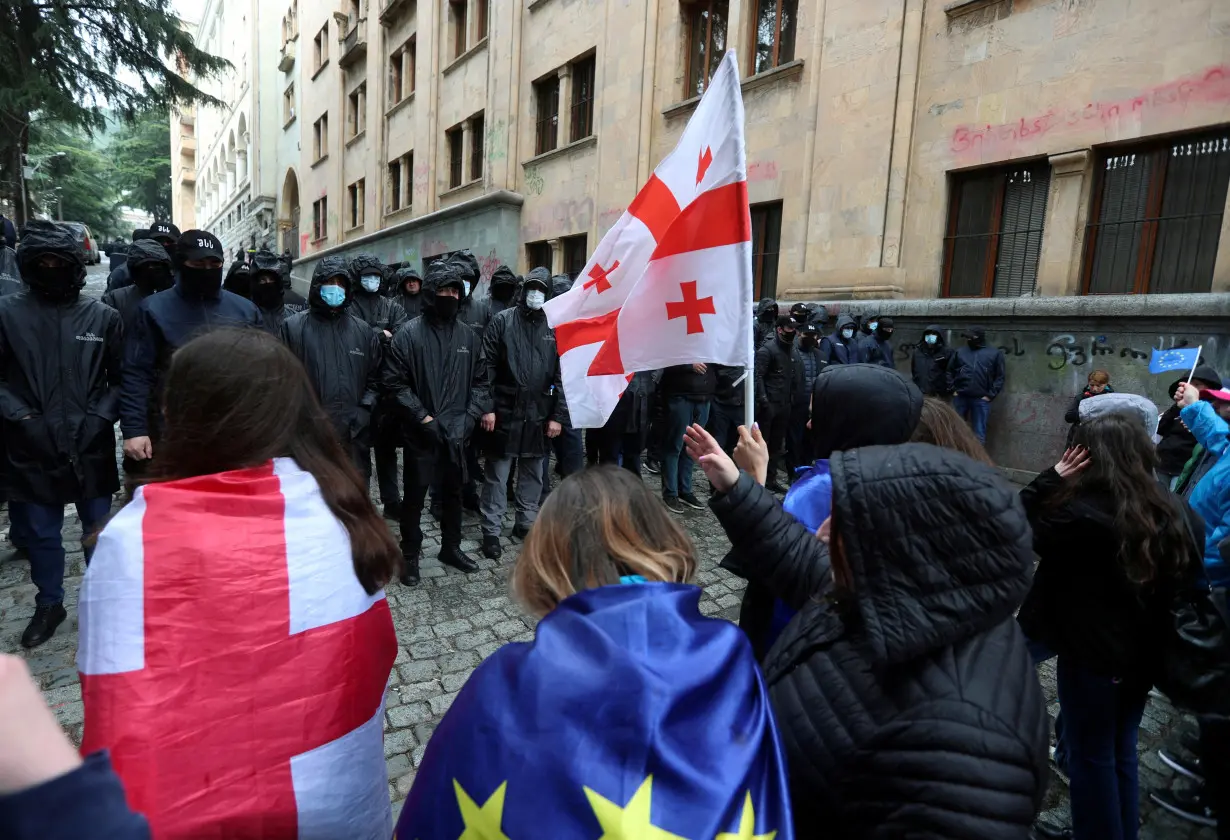By Ali Kucukgocmen
TBILISI (Reuters) - Dimitri Chikovani, a member of Georgia’s opposition United National Movement (UNM) and an active protester against a controversial new law said he was attacked by five people last week, blaming the government for seeking to intimidate opponents.
Mass protests have swept through the capital Tbilisi over the past month since the first reading of the so-called "foreign agent" bill was passed in parliament.

Activists and prominent opposition figures have spoken out about being attacked, including opposition leader Levan Khabeishvili, who appeared in parliament with a bandaged head and said he was beaten by police at a protest, leaving him with broken bones.
Chikovani said he was headed home on Wednesday (May 8) when five people attacked him, kicking and punching him after he fell to the ground with the impact of the first blow, security camera footage outside his house showed.
“It was a very quick (and) quite painful process… but before that, there were numerous calls, threats. And I know for sure that it was not only towards me, but thousands of individuals,” Chikovani said, adding that three others were assaulted the same night.
A spokesperson for the Interior Ministry declined to comment on the allegations.

The bill would require organisations receiving more than 20% of their funding from abroad to register as agents of foreign influence, imposing onerous disclosure requirements and punitive fines for violations.
The Georgian government has said the law is necessary to ensure the transparency of foreign funding for NGOs, combat "pseudo-liberal values" promoted by foreigners and preserve the country's sovereignty.
One ruling Georgian Dream party MP rejected allegations of intimidation, accusing the opposition of staging the attacks themselves.
"If the brutal beating of people is in anyone’s interest, it is definitely not Georgian Dream, but the radical opposition," senior ruling MP Gia Volski was cited by Georgian media as saying on the Chikovani case.
Chikovani suffered a broken nose, broken cheekbones, a concussion and various bruises, including two black eyes. He said he did not go to the police and they have not contacted him, even though they have a responsibility to investigate cases when victims report their injuries to hospital Emergency Rooms.
"I have no faith in our police that they want to investigate,” he told Reuters outside the parliament, where thousands gather daily to protest. He called the police "puppets" of Georgian Dream.
Georgia's parliament on Tuesday (May 14) passed the third and final reading of the bill.
Opponents say the bill is similar to a law that helped quash dissent in Russia against President Vladimir Putin and see it as a test of whether the Georgia stays on a path towards integration with Europe or pivots back towards Moscow.
The U.S., European Union and NATO have all expressed concern over the bill saying it takes Georgia in the wrong direction.
After passage on third reading, the bill now goes to President Salome Zourabichvili, who has said she will veto it, but her decision can be overridden by another vote in parliament, controlled by the ruling party and its allies.
Crowds in the tens of thousands have mounted some of the biggest protests in Georgia since it regained independence from Moscow in 1991.
Chikovani said the protests will continue despite the intimidation.
“We are determined to bring this protest until this Russian law is taken back,” he said. “These methods, which may work in Belarus, is working in Russia - it won't work on Georgians. Georgians like their freedom and we will fight for our freedom.”
(Reporting by Ali Kucukgocmen; Editing by Sharon Singleton)

 Trump has begun another trade war. Here's a timeline of how we got here
Trump has begun another trade war. Here's a timeline of how we got here
 Canada's leader laments lost friendship with US in town that sheltered stranded Americans after 9/11
Canada's leader laments lost friendship with US in town that sheltered stranded Americans after 9/11
 Chinese EV giant BYD's fourth-quarter profit leaps 73%
Chinese EV giant BYD's fourth-quarter profit leaps 73%
 You're an American in another land? Prepare to talk about the why and how of Trump 2.0
You're an American in another land? Prepare to talk about the why and how of Trump 2.0
 Chalk talk: Star power, top teams and No. 5 seeds headline the women's March Madness Sweet 16
Chalk talk: Star power, top teams and No. 5 seeds headline the women's March Madness Sweet 16
 Purdue returns to Sweet 16 with 76-62 win over McNeese in March Madness
Purdue returns to Sweet 16 with 76-62 win over McNeese in March Madness








